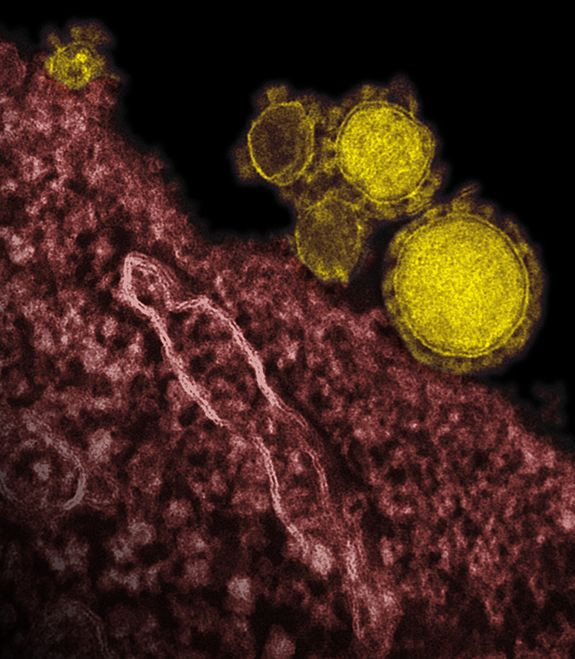WHO Reprimands Saudi Arabia Facility: New Coronavirus Is Spreading Patient-To-Nurse

Two health care workers, one now in critical condition, caught the new coronavirus (nCoV) from patients in their care at a health care facility in the Eastern part of Saudi Arabia, the World Health Organization (WHO) reports in an update late on Wednesday. WHO has noted that all of the most recent cases are linked to a particular Saudi Arabian health care facility, which continues to remain unidentified in its updates on the disease.
A total of 21 patients, including nine deaths, have been reported in eastern Saudi Arabia from the outbreak since the beginning of May 2013 to date. The Ministry of Health in Saudi Arabia is conducting ongoing investigation of the outbreak, while WHO monitors the situation. Experts have suggested calling the new virus MERS, for Middle East respiratory syndrome, but officials have not yet signed off on it, Arab News reports.
"This is the first time health care workers have been diagnosed with (novel coronavirus) infection after exposure to patients," WHO states of the two new laboratory-confirmed cases. Health care-associated transmission has been observed before with nCoV in Jordan last April, but this is a first for Saudi Arabia.
One of the two new patients is a 45-year-old man who became ill on May 2 and is currently in critical condition. The second patient is a 43-year-old woman with a coexisting health condition, who became ill on May 8 and is in stable condition.
In its update, WHO strongly advised health care facilities providing care for patients with suspected nCoV infection to take appropriate measures to decrease the risk of transmission of the virus to other patients and health care workers. Although WHO maintained a diplomatic tone, it seems as though they are being more directly critical than is typical of the agency.
"Health care facilities are reminded of the importance of systematic implementation of infection prevention and control," noted the press release, a "reminder" that seems to be directly addressed at some of the perceived failings of Saudi Arabian health care workers.
History
From September 2012 to date, WHO has been informed of a global total of 40 laboratory-confirmed cases of human infection with nCoV, including 20 deaths from six countries: France, Germany, Jordan, Qatar, Saudi Arabia, and the United Kingdom. As of today, Saudi Arabia has reported the most cases of the nCoV virus, with a total of 30 patients infected, 15 of them fatally.
The new virus, known as novel coronavirus (nCoV), comes from the same family of viruses as the one that caused the deadly outbreak of severe acute respiratory syndrome (SARS) that emerged in Asia in 2003. Fearful of a pandemic, scientists are watching for any sign that nCoV is mutating to become easily transmissible to multiple recipients, like SARS.
The family of viruses, known as "coronaviruses," is named for the crown-like spikes on its surface. Common around the world, coronaviruses often cause colds but the current nCoV attacks the respiratory system with severe symptoms, including fever, cough, and shortness of breath, possibly leading to pneumonia and even kidney failure.
It is unknown how widespread this virus may be. Geneva-based WHO is closely monitoring the situation and regularly publishes information about the disease.
Last year, analysis by scientists at Britain's Health Protection Agency found that nCoV's closest relatives were most probably bat viruses. Further work by a research team in Germany suggests nCoV may have come through an intermediary - possibly goats, Reuters reports.



























